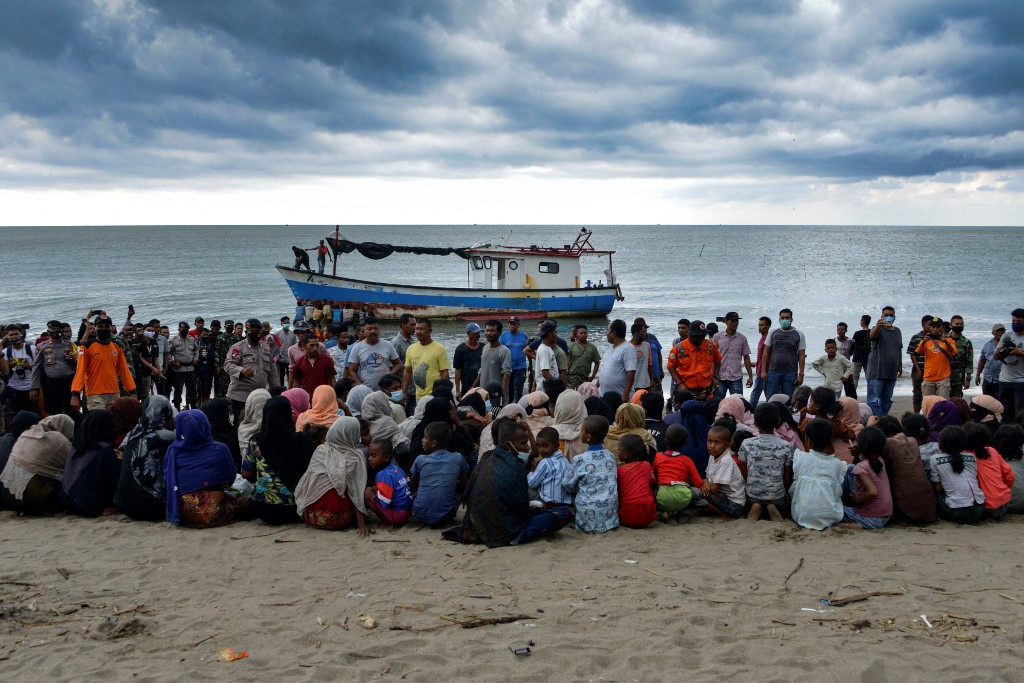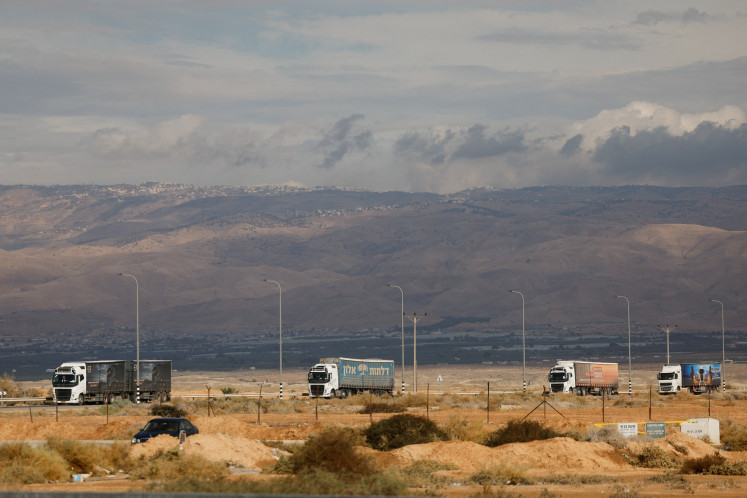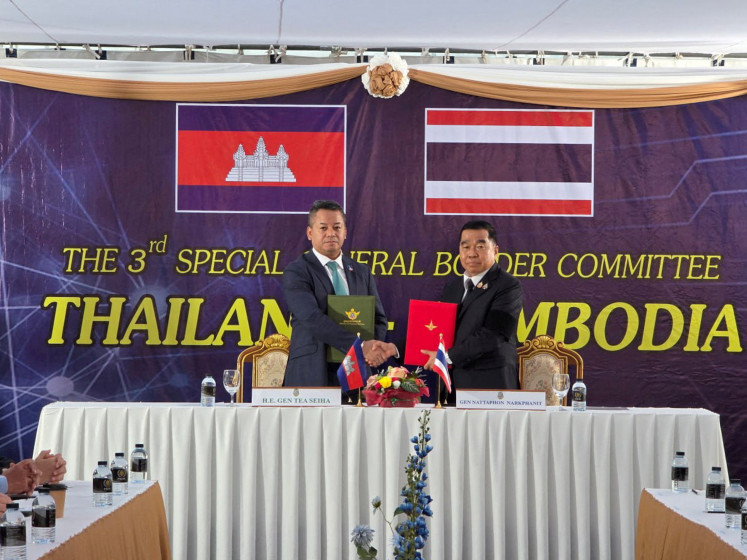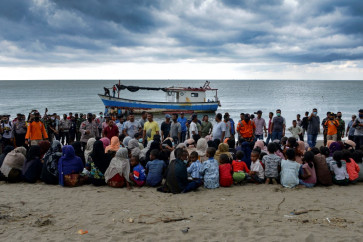Popular Reads
Top Results
Can't find what you're looking for?
View all search resultsPopular Reads
Top Results
Can't find what you're looking for?
View all search resultsUN to cut food aid for Rohingya refugees, citing fund shortfall
About 730,000 Rohingya, a persecuted mostly Muslim minority from Myanmar’s Rakhine state, fled to Bangladesh in 2017 to escape an army crackdown the UN said was carried out with genocidal intent. Including others who left in prior waves, nearly 1 million live in huts made of bamboo and plastic sheets.
Change text size
Gift Premium Articles
to Anyone
 Evacuated Rohingya people from Myanmar sit on the shorelines of Lancok village, in Indonesia's North Aceh Regency on June 25, 2020. Nearly 100 Rohingya from Myanmar, including 30 children, have been rescued from a rickety wooden boat off the coast of Indonesia's Sumatra island, a maritime official said. (AFP/Chaideer Mahyuddin)
Evacuated Rohingya people from Myanmar sit on the shorelines of Lancok village, in Indonesia's North Aceh Regency on June 25, 2020. Nearly 100 Rohingya from Myanmar, including 30 children, have been rescued from a rickety wooden boat off the coast of Indonesia's Sumatra island, a maritime official said. (AFP/Chaideer Mahyuddin)
T
he United Nations plans to slash food aid to Rohingya refugees in Bangladesh, blaming a funding shortfall for cuts that agencies warned on Friday would deepen food insecurity and malnutrition in the world’s largest refugee settlement.
About 730,000 Rohingya, a persecuted mostly Muslim minority from Myanmar’s Rakhine state, fled to Bangladesh in 2017 to escape an army crackdown the UN said was carried out with genocidal intent. Including others who left in prior waves, nearly 1 million live in huts made of bamboo and plastic sheets.
The World Food Program (WFP) said it would reduce the value of its food assistance to $10 per person from $12 starting next month. Donor budgets have been stretched by the pandemic, economic downturn and crises across the globe.
The WFP appealed for $125 million in urgent funding, warning of "immense and long-lasting" repercussions on food security and nutrition in camps rife with malnutrition, where more than a third of children are stunted and underweight.
"That the international donor community is now turning its back on half a million Rohingya children and their families really shows the limits of its commitment to some of the most vulnerable people in the world," Onno Van Manen, Save the Children's country director in Bangladesh, said in a statement.
Two UN special rapporteurs, Michael Fakhri and Thomas Andrews, warned of the "devastating consequence" of the funding shortfall, saying it was "unconscionable" to cut rations just before the Muslim holy month of Ramadan, the UN human rights agency said in a statement.
Cuts could cause more Rohingya to take desperate measures to seek work, said Mohammed Mizanur Rahman, Bangladesh's refugee relief and repatriation commissioner, who is based in Cox's Bazar, the border district where the refugees live.

















